Drumroll, please: introducing the most sustainable fashion brands to have on your radar
Conscious, considered clothing brands are making fast fashion a thing of the past
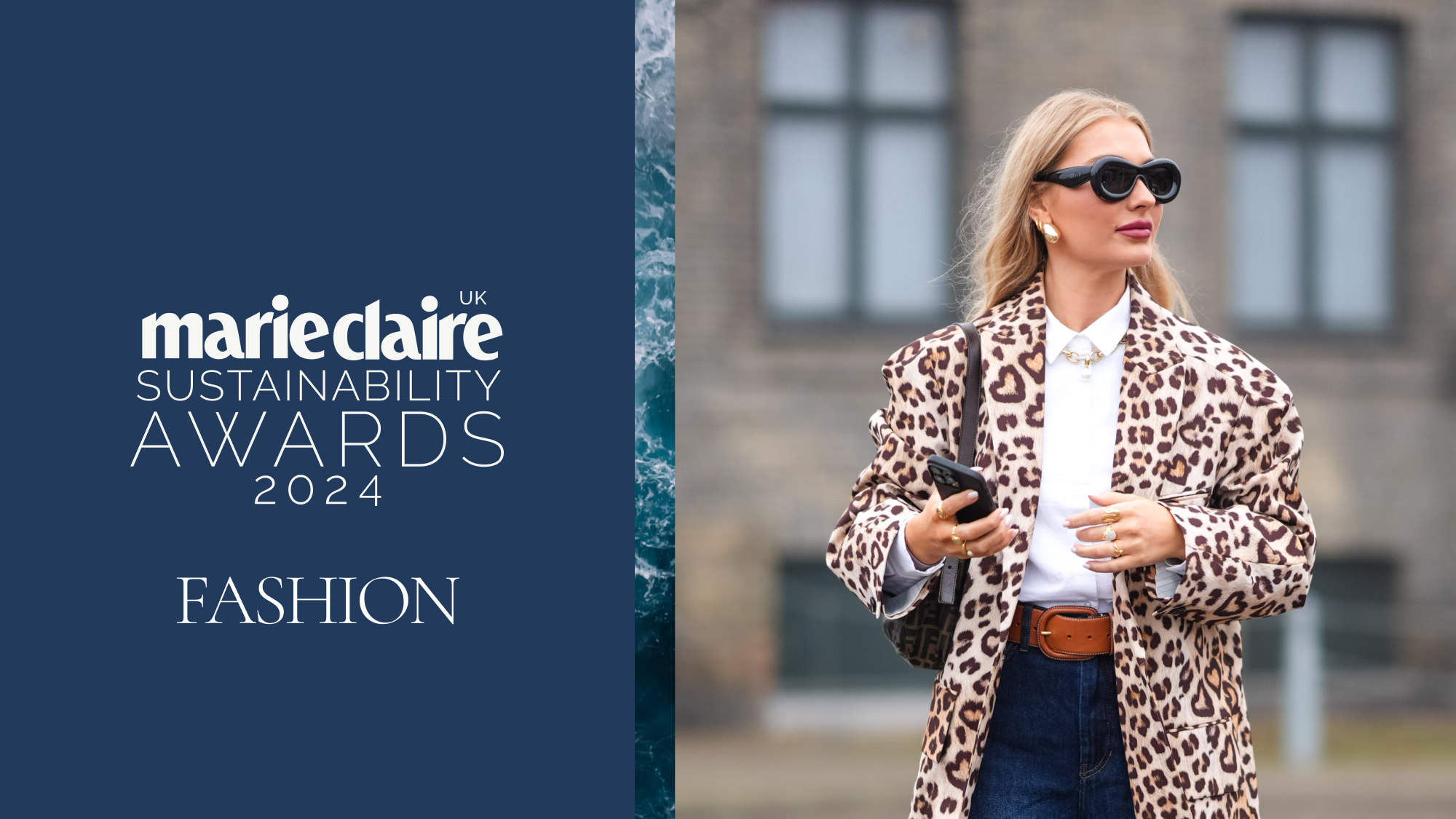

Here at Marie Claire UK, we're huge fans of fashion. But our (borderline obsessional) interest in all things sartorial comes with a caveat: we want the clothes we buy to be as kind to our planet and its ecosystems as possible.
Fast fashion has an undeniable impact on the environment. According to research conducted by the UN Environment Programme, the clothing industry accounts for up to 8% of global carbon emissions – and to put that figure into context, that’s roughly the same amount as all international flights and maritime shipping combined.
But there is some good news: 57% of British people consider sustainability in fashion to be important, according to the UK Fashion and Sustainability Market Report 2024. With this in mind, we’ve scoured the industry for the leading changemakers who are as committed to people and the planet as they are to profit.
Keen to meet brands that put people and planet before profit? Then keep scrolling to meet the Marie Claire UK Sustainability Awards 2024 winners in the Fashion category.
Meet the Marie Claire UK Sustainability Awards Fashion winners for 2024
1. Accessory brand
WINNER: MĀRĪCĪ
Who? Aptly founded on Earth Day in 2020, this London-based luxury accessories brand creates heritage, plant-based handbags as an alternative to traditional leather and synthetics pieces.
Why? High-end handbags don’t get more environmentally-friendly than MĀRĪCĪ’s stylish offerings. At its heart is a circular design concept rooted in sustainability, offering innovative plant-based alternatives.
In addition to B Corp certification, the brand prides itself on creating practical and timeless designs made from revolutionary materials using traditional artisanal techniques.
Marie Claire Newsletter
Celebrity news, beauty, fashion advice, and fascinating features, delivered straight to your inbox!
“I love this non-leather product,” notes Sustainability Awards judge Maria Chenoweth of TRAID. “These bags look super luxurious and would hold their own in the luxury goods industry.”
“The company has strong principles on materials and manufacturing practices, and it’s really nice to see high-end retailers such as Selfridges backing them,” adds fellow judge Smruti Sriram, of Bags of Ethics.
A photo posted by on
HIGHLY COMMENDED: O My Bag
2. Activewear
WINNER: BAM
Who? BAM has been quietly revolutionising the activewear market since 2006, creating wearable and comfortable athleisurewear that stands up to the demands of working out, be it hiking, cardio or yoga.
Why? Despite being a small player in the industry, BAM continues to lead the way in 2024, with innovative, lower-impact fabrics and a goal to eliminate basic fibres by 2030. With 69% of textiles being virgin synthetics cast from unsustainable crude oil, BAM is challenging the status quo by using 95% unique, nature-based fabrics such as Sila (which incorporates lower-impact yak wool) and PFC-free water-repellent Agallea. It is committed to harnessing the latest technology to reduce its footprint, and in 2023 launched its award-winning BAM DNA labelling, which offers full traceability for each product’s manufacturing and supply.
BAM consistently achieves B Corp certification and 13% of its product range is now 73 Zero (diverting some of the 73% of all materials that are sent to landfill) and certified recyclable by the Circular Textiles Foundation. In 2024, the brand is focused on further reducing its impact as it works towards a net zero goal.
“BAM is a shining example of how to produce planet-friendly activewear that
actually performs, too, which is no mean feat,” says Maire Claire UK sustainability editor and Awards judge, Ally Head. “The sector is notoriously unsustainable, and getting its materials spot on to support you through your sweat classes while also putting the planet first should be commended. It’s also impressive that it has measured 95% of its supply chain back to the source fibre or field, showing its dedication to a fully traceable supply chain.”
A photo posted by on
3. B2B Service or Innovation
WINNER: Movopack
Who? Movopack provides sustainable, eco-friendly and reusable packaging to online outlets – think cardboard box alternatives.
Why? Given that the average European generates 188kg of packaging waste each year, it’s clear a solution is needed. Our judges were impressed by Movopack’s commitment to innovation and scaling the business in order to legitimately tackle the issue of ecologically harmful waste packaging.
Movopack’s packaging solutions embrace the principles of the circular economy: rather than being produced and discarded after each use, its packaging can be reused up to 20 times, significantly reducing carbon emissions (75%), energy (72%) and water consumption (75%).
The brand has a clear goal to manage over nine million packaging units by 2027, shifting away from single-use packaging and setting a new standard in packaging consumption.
“For me, this is a truly innovative solution to a problem that is scaling in terms of negative environmental impact,” says judge Lynda Petherick of the British Fashion Council. “While the solution may not be as ‘beautiful’ as some of the entries, the aggregate impact of this sustainability innovation is clearly articulated. The business is also scaling and I hope that its participation and positioning through these awards helps Movopack expand its proposition into a greater number of retail businesses.”
“MovoPack’s innovative approach tackles a massive problem in ecommerce: single-use plastic packaging,” adds Amy Bourbeau, co-founder of our Sustainability Awards partner, Seismic. “By championing circularity in a user-friendly way, it ensures reusable packaging actually gets reused. Its positive impact, backed by rigorous lifecycle assessments, demonstrates B2B innovation with the potential to transform the industry and create lasting positive change.”
A photo posted by on
HIGHLY COMMENDED: NATIVA™ and Salvation Army Trading Company
4. Clothing
WINNER: Everlane
Who? Founded in 2011 by American entrepreneur Michael Preysman, Everlane is an online-only retailer with a timelessly neutral aesthetic. The brand is committed to purposeful design, functional beauty and conscious craftmanship, including responsible manufacturing practices.
Why? Everlane demostrates a strong commitment to sustainability that is aligned to United Nations’ Sustainable Development Goals. The brand has three guiding pillars – Keep Earth Cool, Keep Earth Clean, and Do Right By People – and it displays a clear commitment to doing good while looking good. In 2023, its use of preferred materials increased to 80%, with significant progress in sourcing organic, recycled, regenerative and traceable fabrics.
Meg O’Hara, founder of resale and rental platform Rites, praised the company’s “holistic view of sustainability and clear, measurable goals”, while Seismic’s Ro Egglesfield says: “Everlane sets the standard for sustainable fashion. Its robust supplier policies, innovative practices, and commitment to worker wellbeing demonstrate a holistic approach that prioritises both people and the planet.”
A photo posted by on
HIGHLY COMMENDED: NoLoGo-Chic and Aspiga
5. Denim
WINNER: Fanfare Label
Who? Independent, sustainable womenswear label Fanfare is an award-winning, circular fashion brand aiming to transform the way we buy, wear and discard clothing. It focuses on denim – a material with an exceptionally high environmental cost – paving the way for more planet-friendly fashion.
Why? Prior to setting up the label, founder Esther Knight established relationships with recycling plants and charities to enable her to put sustainable and ethical practices in place. Fanfare reuses and recycles denim from landfill to create unique and contemporary collections. The brand has a clear commitment to transparency, and is open with its goals and mission.
“Fanfare is a great example of how sustainable and circular clothing doesn’t mean you have to compromise on creativity,” says Marie Claire UK fashion director Lily Russo-Bah. “From repurposing, to restoring and recycling pre-loved items, to keeping production local, Fanfare has a 360 approach to sustainability.”
“Fanfare proves that ethical, sustainable brands can be covetable,” adds Marie Claire UK fashion editor Natalie Hughes. “I love how the brand incorporates rescued, repurposed and recycled materials into each and every one of its products, 90% of which are made locally in its east London studio. This is a fine example of a small, independent brand that others should be looking to.”
A photo posted by on
6. Fabric Innovation
WINNER: Mela
Who? Female-owned vegan leather goods brand Mela produces elegant and ethical handbags and accessories. It is passionate about helping women look good while doing good – and we can’t say fairer than that.
Why? It’s clear that Mela is truly committed to sustainability. Its bags are crafted by Tuscan artisans in a family-owned factory using its own ingenious leather alternative, which is derived from apple leftovers from the juicing industry. It’s safe to say our judges were impressed.
“Mela is doing an excellent job as a sustainable vegan leather brand,” says Sara Simmonds of The Impact Innovator. “It’s not using plastic leather, but food-waste leather, which is brilliant; it also pays living wages and is B Corp certified. It’s clear every part of its sustainability journey has been thought through and been well implemented – the brand is walking the sustainability walk rather than simply talking about it.”
Fellow judge Cat Lee of The White Company adds: “Mela is a fantastic brand with a very positive ethos. There’s been a huge amount of work behind the creation of the material, an amazing innovation of vegan leather without the use of plastic – not an easy feat – while even the metal components are made using non-toxic materials. Mela is committed to fantastic donation initiatives that work to both remove ocean plastic and to plant trees, and it’s great to see the factory used is very close to the material production site, too.”
HIGHLY COMMENDED: Wuka
7. Footwear
WINNER: EMU Australia
Who? EMU Australia is best known for its sheepskin boots, slippers and accessories, with a focus on comfort and sustainability above all else.
Why? Drawing inspiration from the Australian life and landscape, EMU Australia’s commitment to sustainability shines through all aspects of its production. From innovative design through to 100% natural materials, this is a company investing in quality that lasts.
“EMU Australia demonstrates a true passion for developing a sustainable business by tracking its environmental footprint by reducing targets for water,” says Marie Claire UK fashion writer Sofia Piza. “Additionally, the brand educates its customers online through easy-to-follow graphics that hold information about the brand and its journey. With a strong ethos, it shows a strong sense of commitment and focus on achieving its goals.”
A photo posted by on
HIGHLY COMMENDED: Schuh
8. Jewellery
WINNER: Oushaba
Why? Oushaba’s self-professed mission is to “breathe new life into forgotten materials”, so don’t be surprised to see repurposed circuit boards as necklaces, while old phone charger plugs are turned into stunning earrings. It prides itself on championing sustainable methods and ethical practices, with a truly circular process – the brand even offers a repair and warranty service, designed to ensure your pieces last as long as possible.
“Oushaba has excelled at considering all aspects of sustainability when establishing its product and business, evidenced by being awarded the
Butterfly Mark from Positive Luxury,” remarks Petherick, while Harriet Vocking of Eco-Age comments: “The vision for Oushaba is very inspiring, and its dedication to circularity really sets it apart in the market. The e-waste focus is particularly unique and has amazing potential to shift the industry.”
“Oushaba shows an innovative approach to sustainability, setting a new standard for the jewellery industry. By transforming e-waste into jewellery pieces, it demonstrates a commitment to circularity and resourcefulness. Its dedication to ethical sourcing and social responsibility further solidifies its position as a leader in sustainable jewellery,” notes Egglesfield.
A post shared by Oushaba (@oushabaworld)
A photo posted by on
HIGHLY COMMENDED: Monica Vinader
9. Luxury Brand
WINNER: Anya Hindmarch
Who? Founded in London in 1987, Anya Hindmarch’s luxury goods brand is synonymous with impeccable design and creativity.
Why? As fun as they are functional (Rich Tea biscuit-themed clutch, anyone?) Anya Hindmarch’s cult bags have near-iconic status in the industry, while Dame Hindmarch is known for her pioneering and forward-thinking approach to sustainability – who can forget 2007’s I’m Not A Plastic Bag initiative?
The brand is proud to have signed up to the Fashion Industry Charter for Climate Action; it also offers a capsule rental collection. Additionally, its factories are regularly checked to ensure compliance with its code of conduct.
“Anya Hindmarch’s commitment to sustainability is holistic, meticulous and totally transparent,” comments Hughes. “The brand’s 2007 I’m Not A Plastic Bag initiative was pioneering, imaginative and contributed to real change, helping with the change in the law that led to retailers charging for plastic bags.
“Anya Hindmarch has only continued to innovate and evolve its sustainability initiatives,” she continues. “Most notably, it launched its Return to Nature collection of fully compostable bags made from fully traceable leather. Every aspect of the process has been deeply considered and shared with the brand’s customer base. There’s also the I Am A Plastic Bag collection, which makes use of used plastic bottles and old windscreens, diverting them from landfill. This is a luxury brand that is doing real work in reducing its environmental footprint in an honest and open way.”
“Anya Hindmarch has shown that luxury brands can have a significant impact on the way consumers view sustainable products and, with this long-standing initiative, reusable shopping bags,” adds Russo-Bah.
A photo posted by on
HIGHLY COMMENDED: Mood of Thought
10. Multi-brand retailer
WINNER: Wolf & Badger
Who? Wolf & Badger is a B Corp-certified global marketplace for ethical clothing, jewellery and homewear brands. It has stores in London, LA and New York, alongside an extensive online presence.
Why? Offering carefully curated collections, Wolf & Badger is home to over 2,000 independent brands, with a view to building a community of ethical brands and conscious consumers. Founded in Notting Hill in 2010, it has grown into a globally recognised brand with a clear commitment to sustainability: its vision is for a “fair and frictionless” future for retail. Its annual Impact Report is available to read on its website.
“It’s wonderful to see a multi-brand retailer champion sustainability and ethics while supporting smaller, independent brands,” says Hughes. “From the brand-vetting process to its annual impact reports, this B Corp company’s approach is thorough and transparent.”
Piza agrees. “Wolf & Badger upholds its strong ethos and purpose in nurturing a community of ethical brands with conscious consumers,” she says. “A certified B Corp, it skilfully vets brands through its platform against an obligatory Happy Worker Guarantee to ensure the brands it stocks uphold its principles.”
A photo posted by on
11. Progress towards circularity
WINNER: COS
Who? High street stalwart COS has long been associated with understated luxe looks in a neutral aesthetic. From city chic to denim, it consistently nails timeless classics that last.
Why? Again, COS is focused on the circularity of its pieces, from conception to length of life – 95% of the materials it uses are sustainably sourced or recycled, and in 2023 it launched its Resell, Restore and Repair initiative, which includes an online market for customers to sell pre-loved COS items. In addition, it invests in non-profit organisations to ensure gender equality in its supply chain.
“It’s positive to see COS having different initiatives to address circularity, especially cotton recycling,” says Amy Tsang of The Mills Fabrica, while Chenoweth notes that “COS clothing is more thoughtful with its design and materials when compared to other high street brands, therefore its product should have a good and desirable resale market.”
We'd like to see clearer communication around its in-store recycling initiative as sometimes, donor discounts on buying more clothes may not align with sustainable practices. Overall, though, the brand is making progress towards some clearly articulated eco-friendly goals.
A photo posted by on
12. Re-commerce
WINNER: Reskinned
Why? The pre-loved clothing market has been picking up pace for a few years now, and brands such as Reskinned are making the reduce, reuse, recycle trifecta easier to achieve than ever. By providing all three in one easy-to-use and innovative marketplace, Reskinned creates more opportunity for clothing rehoming as an alternative to landfill.
“The 360 approach Reskinned is taking to rehome and repurpose unwanted clothes through brand takeback schemes and upcycling is a crucial development in how we view sustainability,” says Russo-Bah.
“It’s a really impressive initiative that allows pieces to receive a second chance
while promoting circular fashion,” agrees Piza. “Facilitating the circulation of pre-loved clothes and giving sustainable fashion a future, Reskinned aims to
educate and reach audiences to promote its ethos and has done this successfully. A clear and spectacular example is its collaboration with Sweaty Betty, which repurposes worn-out activewear.”
A photo posted by on
13. Rental
WINNER: John Lewis
Who? We’re all familiar with high street mainstay John Lewis: its flagship London store opened on Oxford Street back in 1864, and since then it’s become nothing short of a British institution, standing for quality, value and fairness. In a bid to further its sustainability credentials, the brand has recently launched a fashion rental service.
Why? John Lewis Fashion Rental was developed in response to the need to provide consumers with more sustainable fashion solutions. Currently available for womenswear and childrenswear, the brand is expanding its rental offering to include bags, accessories and maternity wear, with the menswear rental recently launched, too. The judges praised its holistic and meticulous approach to sustainability.
“John Lewis has shown significant progress in overhauling the way it operates as a business in order to meet its sustainability commitments,” notes Russo-Bah. “While there are still some improvements needed to meet its circularity targets, the expansion of fashion rental, together with the introduction of the circular design collection and steps taken to make all own-brand product packaging recyclable, reusable or home compostable, are very promising.”
A photo posted by on
14. Small business
WINNER: Wild Clouds
Who? Independent, female-owned business Wild Clouds was established in 2021. The brand is committed to slow fashion, producing seasonless, 100% vegan and plastic-free clothing that caters to diverse identities and body types.
Why? Wild Clouds has a robust design and repair promise, developed with the ultimate goal of creating long-lived circular clothing. It also offers a made-to-order service for those who don’t fit into its current size range. The brand prides itself on seeking to minimise its environmental footprint at every stage of the process, from inception to long life, while also committing to self-set targets.
“Keeping production small but still keeping prices accessible is very hard to do, so this feat is commendable,” praises Isabella Charlotta Poppius of One Tree Planted. “Its made-to-measure service is great – if a customer wants something more tailored and flattering to their body shape, that should always be an option. It’s also amazing to see that the brand is fully plastic-free, down to the trims, buttons and so on. Fabulous.”
“Wild Clouds shows us the power of inclusivity in sustainable fashion,” adds
Bourbeau. “It caters to the underserved and embraces those of us who live
beyond the gender binary. The brand also shows strong environmental commitments through certifications like B Corp, OCS (Organic Content Standard) and OEKO-TEX. A deserving winner.”
A photo posted by on
HIGHLY COMMENDED: Biophilica
15 . Supply chain
WINNER: SMO (Single Mine Origin)
Why? With the price of gold at an all-time high, it’s more vital than ever to be able to establish a responsible supply chain that excludes criminal activity and negative environmental impacts.
SMO is the only initiative in the world to recognise the world’s most responsible mines and keep its gold segregated throughout the supply chain. Every ounce of SMO gold is fully traceable back to its mine of source, cultivating a viable solution for positive and large-scale, industry-wide change.
“Increased transparency in this sector is critical to improving the social and
environmental outcomes for countries and communities with mineral wealth,” explains Bianca Hanscombe of Aviva. “The nuanced approach for the complexities of differing regions is noted as it allows good practice to flourish, even in challenging environments.”
A photo posted by on
HIGHLY COMMENDED: Wellicious
16. Swimwear
WINNER: KŌRARU
Who? Founded by Romanian model and designer Oana Romaneiro, KŌRARU (inspired by the Japanese word for coral) is a premium sustainable swimwear brand. KŌRARU is committed to crafting slow fashion for a circular world. It produces stylish, luxury swimwear using technical fabrics designed to stand up to the demands of their use.
Why? Modern swimwear and sustainability haven’t always gone hand in hand; designs are often made from synthetic materials that are now known to shed ecologically harmful micro fibres, and not always built to last. KŌRARU is starting to make waves in sustainability by creating beautiful items that hold their value and style, reducing the need to buy new each year. Its line is crafted from ECONYL (regenerated yarn from nylon waste), and top marks also go to its recycled packaging.
“KŌRARU is a great premium luxury swimwear brand with a strong end goal of circularity,” notes Piza. “With a transparent supply chain and evident dedication to upholding its sustainability practices, the brand has clearly innovated with poly bags that are made from the same fabric as medical capsules to avoid traditional plastic packaging. It’s shown that change can be possible by finding creative and scalable solutions in order to uphold its core values.”
A photo posted by on
HIGHLY COMMENDED: Antoninias
17. Underwear
WINNER: The Very Good Bra
Who? Launched in May 2019 by founder Stephanie Devine, The Very Good Bra is the world’s first plastic-free bra. Developed in response to Devine’s own search for a wire-free bra during her treatment for breast cancer, the brand is completely waste- and toxin-free, using no nylon, polyester, synthetic fabrics or elastic in its extensive range of lingerie and nightwear.
Why? It’s no small feat to use all-natural components in lingerie, but this Australian brand is dedicated to being zero waste – so much so, in fact, that its bras can even be eaten by worms.
“Its comprehensive approach encompasses not just circularity and product innovation but also a highly ethical supply chain,” says Miriam Sibide of Brands on a Mission. “It demonstrates an unwavering commitment to sustainability by choosing 100% plastic-free, botanically sourced materials and ensuring transparency about its practices.
“The Very Good Bra is clear about its stance on sustainability, prioritising it over expanding its product offerings, and maintaining high ethical standards in its manufacturing processes,” she continues. “Its dedication to reducing
environmental impact through every stage of the product lifecycle and through various platforms exemplifies the highest sustainability practices.”
A photo posted by on
HIGHLY COMMENDED: Studio Pia
Marie Claire UK has determined the award winners in accordance with the judging criteria and with the information provided by the entrants. All information provided by the winning brands is published in good faith.

Anna Bartter is a freelance journalist who writes about health, fitness and women's lifestyle for publications including Stylist, Metro and Psychologies, among others.
She's always on a quest to find a variety of fun and functional workouts that give you the most bang for your workout buck and she's passionate about championing movement for everyone's mental and physical wellbeing.
-
 How the slogan t-shirt became this season's must-have - and why it's more than just another trend
How the slogan t-shirt became this season's must-have - and why it's more than just another trendNot just another Nineties throwback
By Clementina Jackson
-
 How are Trump’s tariffs affecting the fashion industry?
How are Trump’s tariffs affecting the fashion industry?The fluctuating situation in the US is having very real consequences
By Rebecca Jane Hill
-
 Here's every character returning for You season 5 - and what it might mean for Joe Goldberg's ending
Here's every character returning for You season 5 - and what it might mean for Joe Goldberg's endingBy Iris Goldsztajn
-
 It's official: these are the 100+ most sustainable brands in the world for 2024, according to top pros
It's official: these are the 100+ most sustainable brands in the world for 2024, according to top prosMeet the winners of this year's Marie Claire UK Sustainability Awards.
By Anna Bartter
-
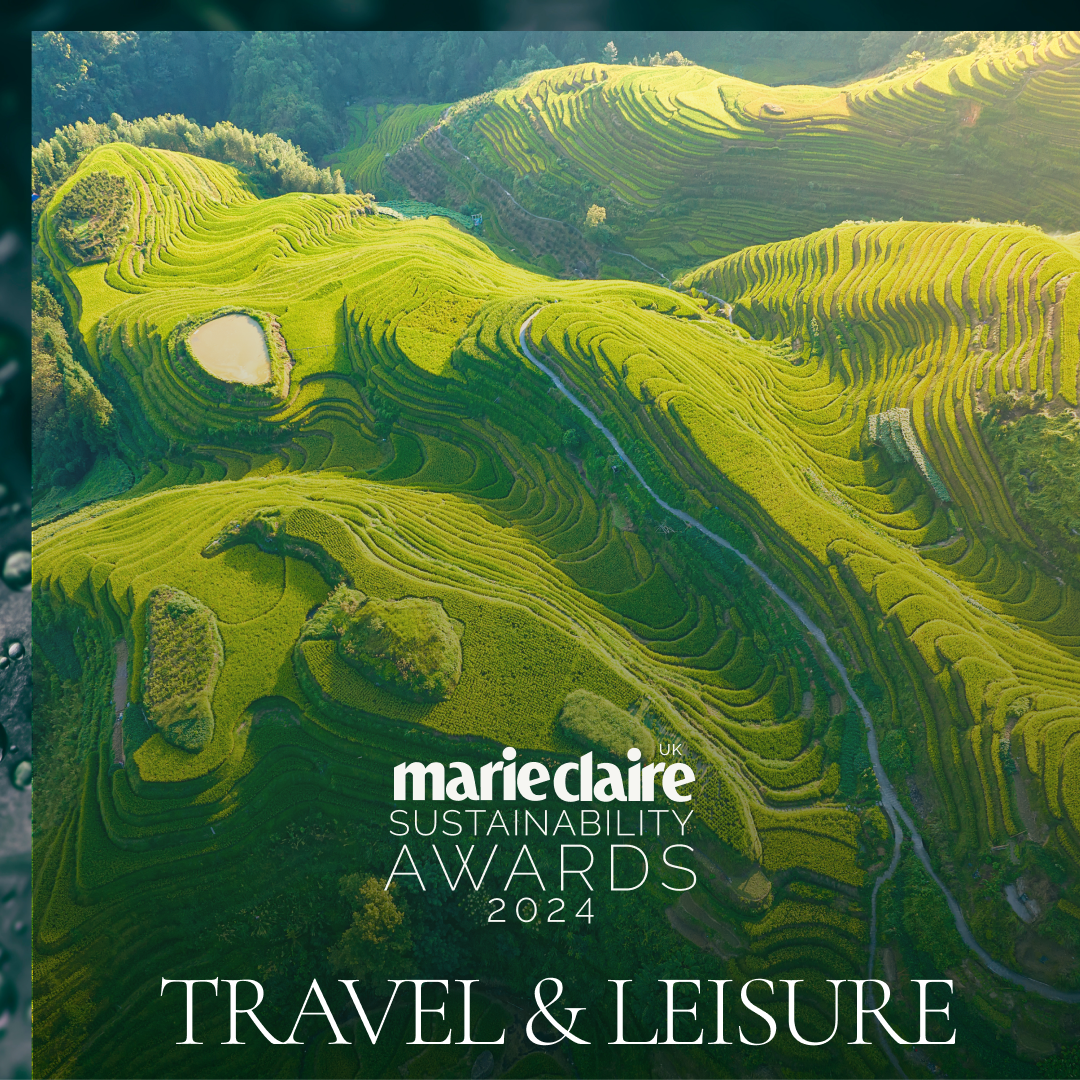 Yes, travelling more sustainably is possible – and our 2024 Sustainability Award winners make it that bit easier
Yes, travelling more sustainably is possible – and our 2024 Sustainability Award winners make it that bit easierMeet the best eco-friendly travel and lifestyle brands to have on your radar.
By Anna Bartter
-
 Look no further: these are the 7 most sustainable motor brands to opt for in 2024
Look no further: these are the 7 most sustainable motor brands to opt for in 2024Driving and sustainability needn’t be mutually exclusive, as these brands show.
By Anna Bartter
-
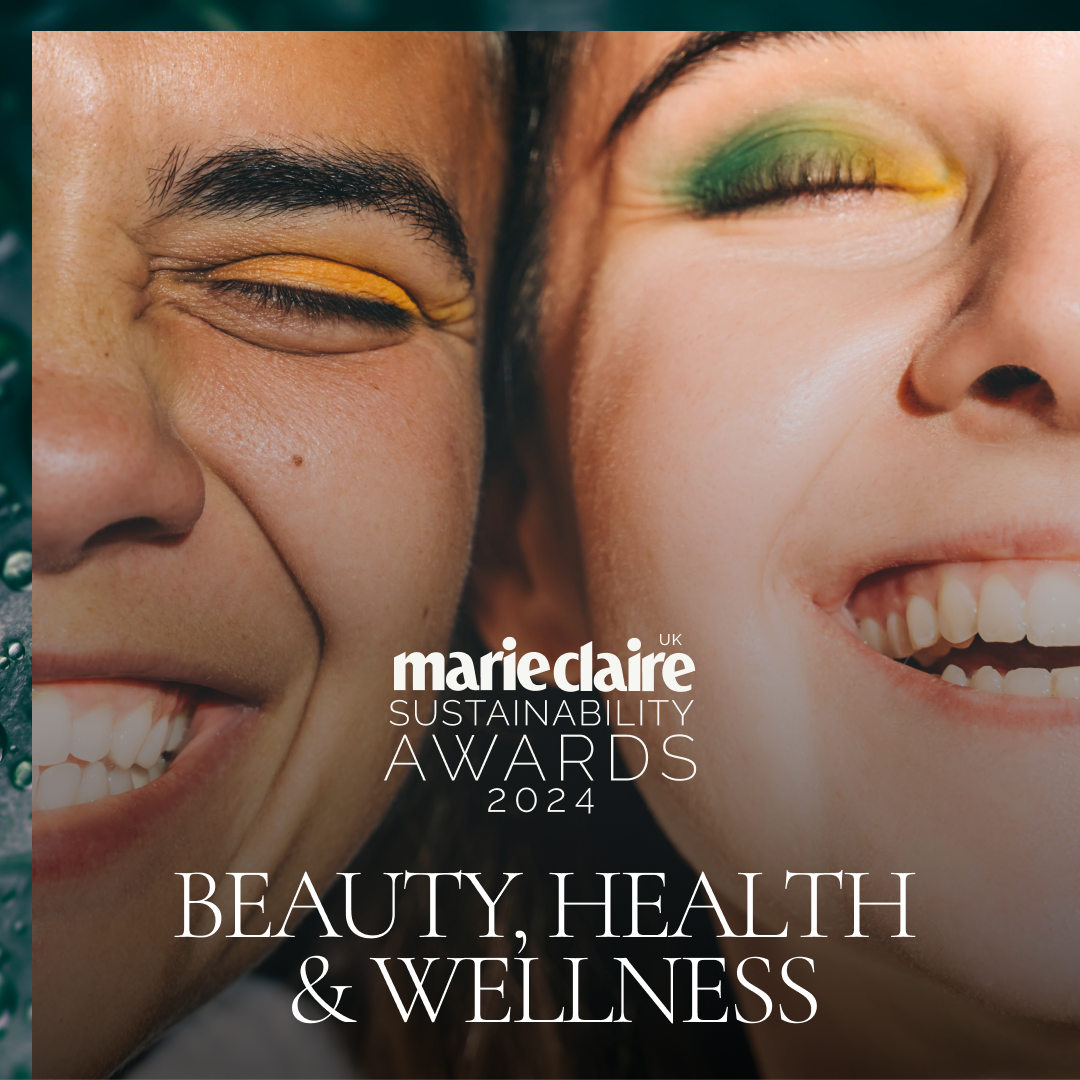 Want to shop sustainable beauty? These are officially the best brands to invest in this year
Want to shop sustainable beauty? These are officially the best brands to invest in this yearAs selected by top industry experts.
By Tori Crowther
-
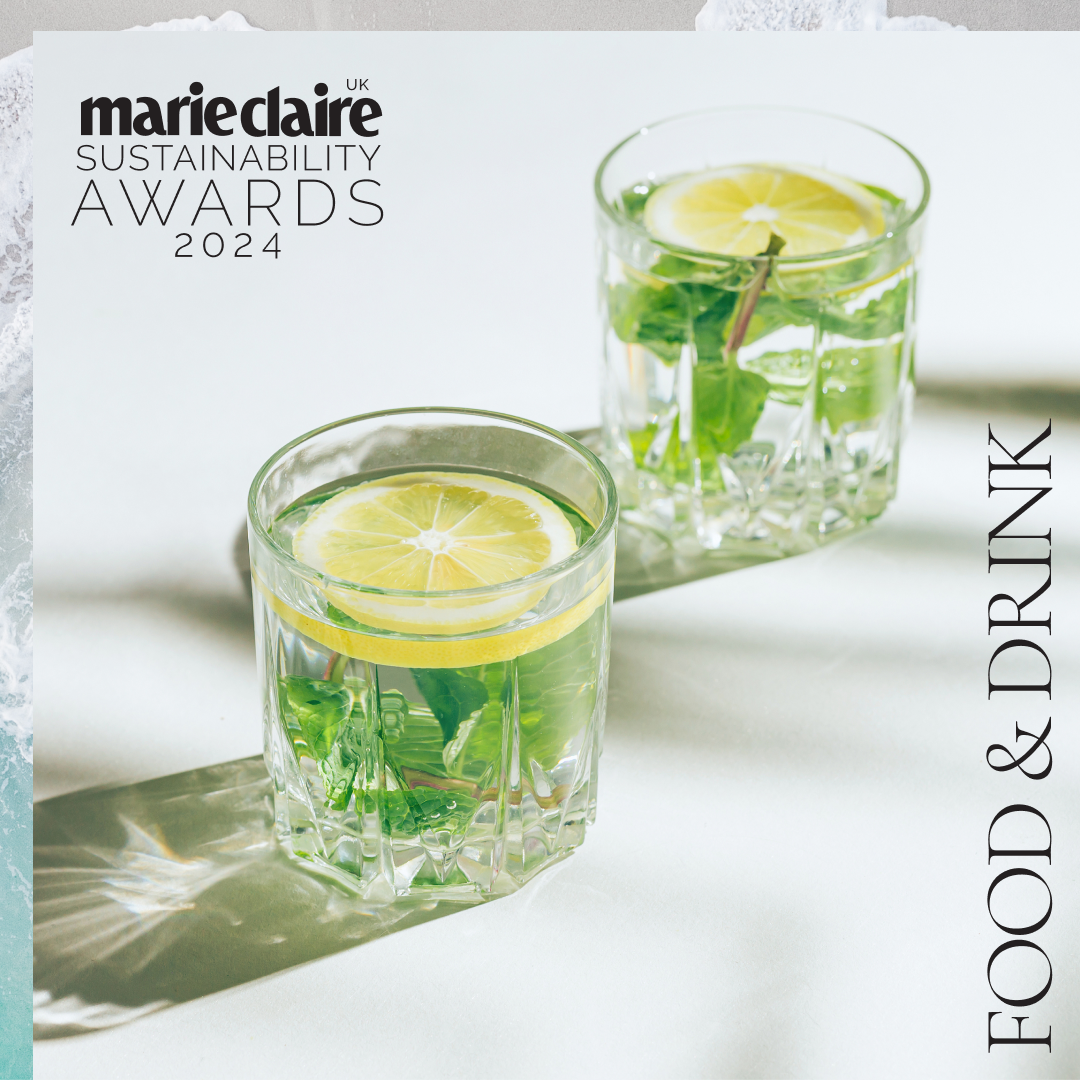 Keen to eat more sustainably? Meet the food and drink brands going to extra mile for people and planet
Keen to eat more sustainably? Meet the food and drink brands going to extra mile for people and planetMeet the brands leading the charge for planet-friendly food and drink
By Anna Bartter
-
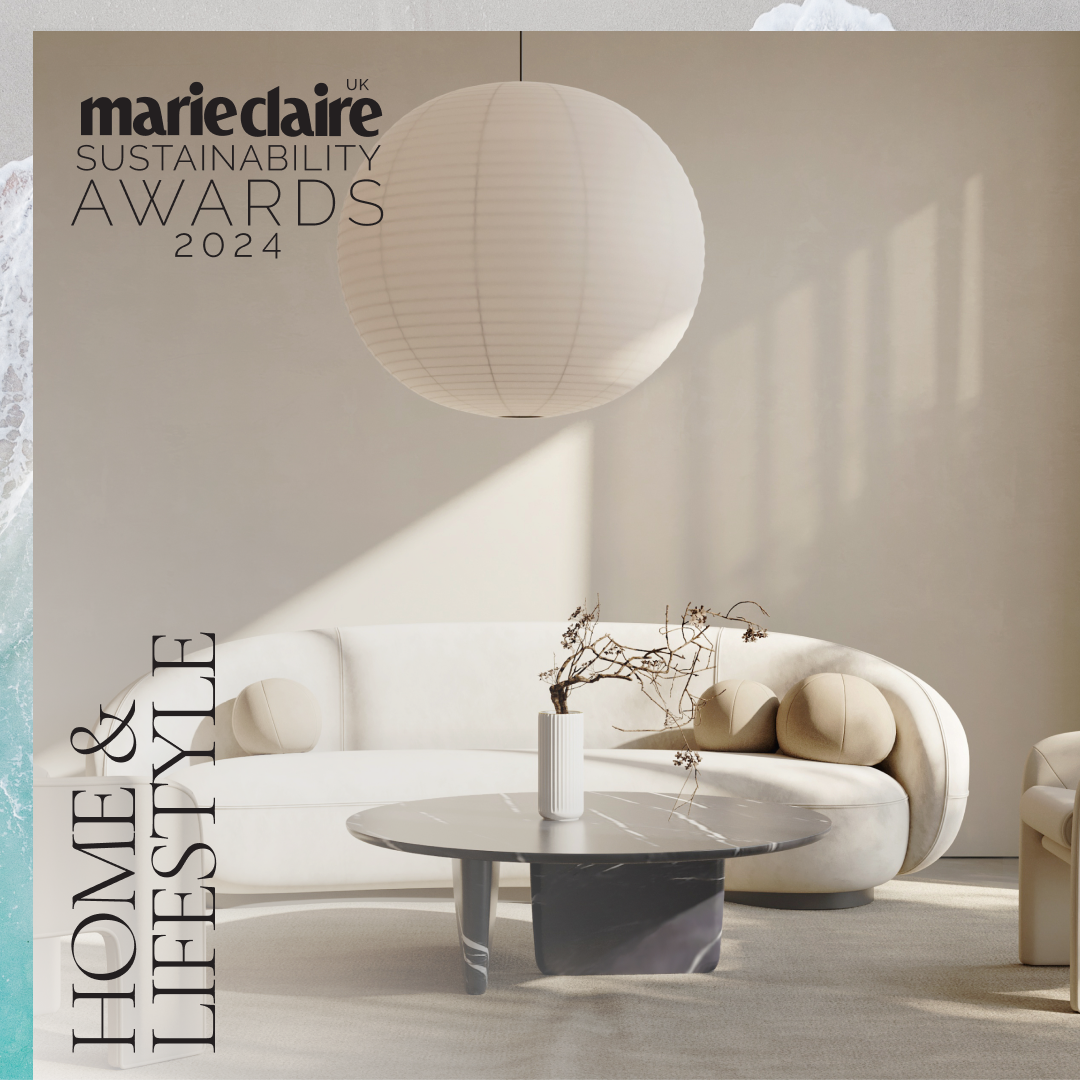 Looking for ways to live more sustainably? These are the 9 best eco-friendly home brands, according to top experts
Looking for ways to live more sustainably? These are the 9 best eco-friendly home brands, according to top expertsSustainability really does start at home – and these brands make it simpler.
By Anna Bartter
-
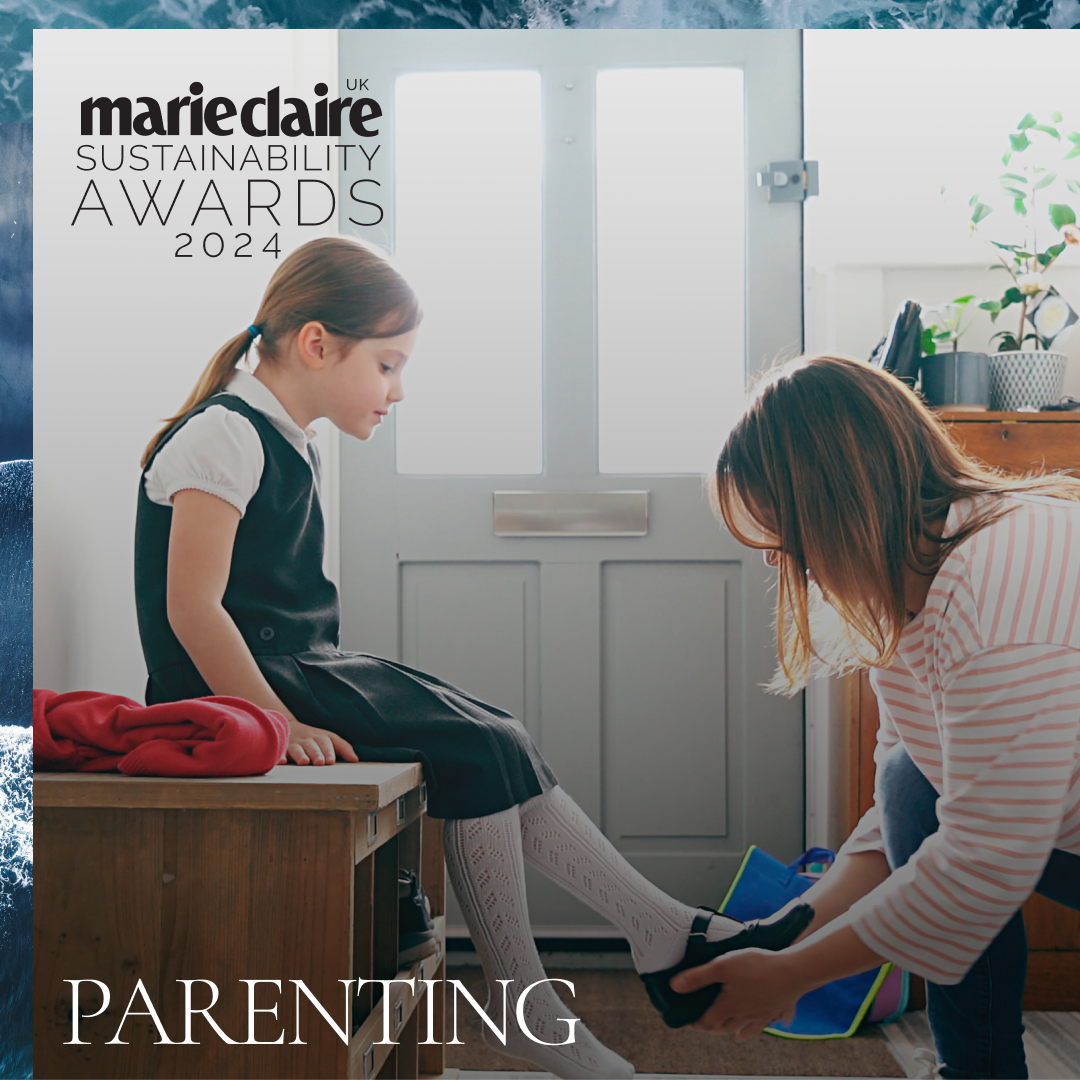 No, motherhood doesn't need to be wasteful - thanks to our favourite planet-friendly parenting products
No, motherhood doesn't need to be wasteful - thanks to our favourite planet-friendly parenting productsHaving a baby needn’t cost the - literal - earth.
By Anna Bartter
-
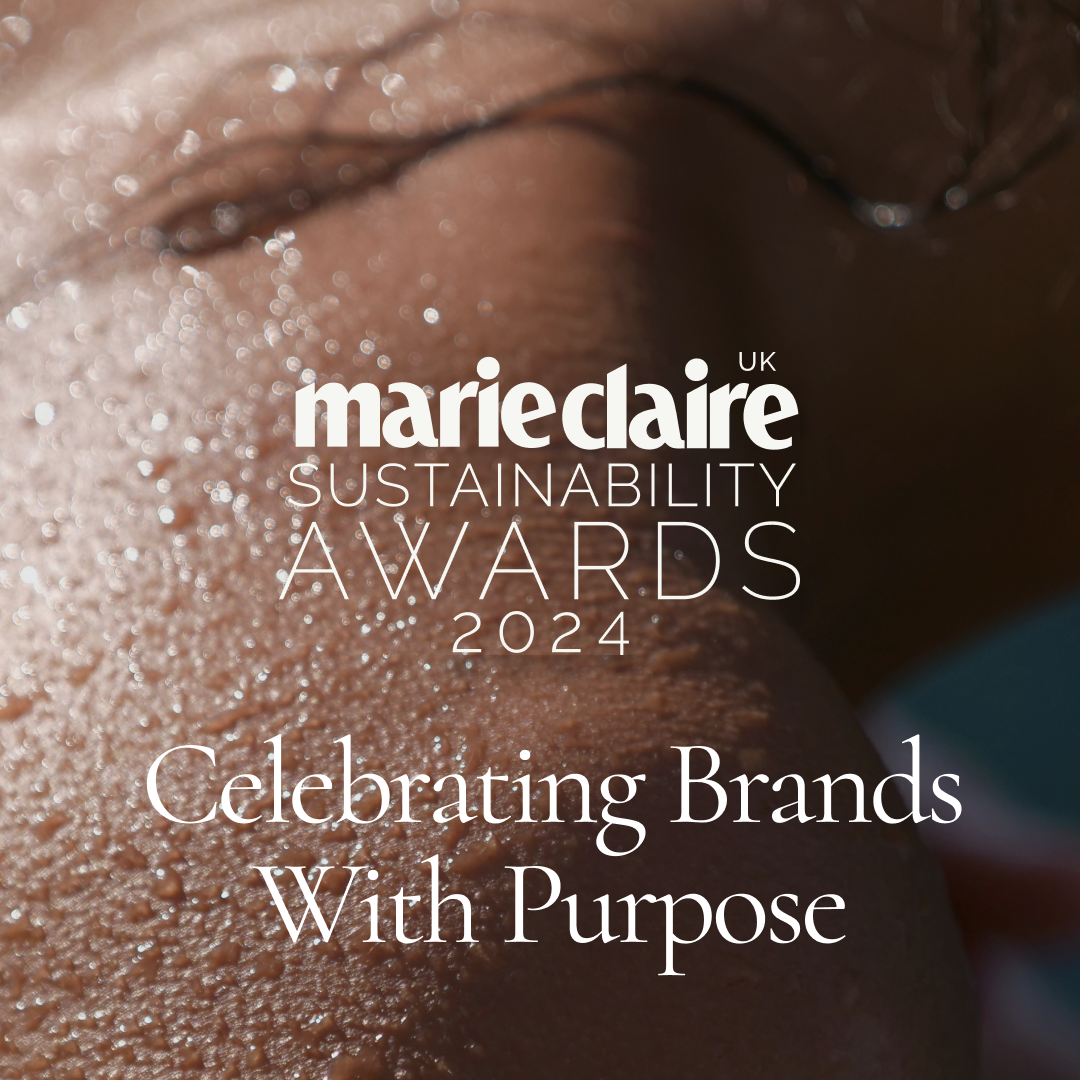 Introducing our panel of leading experts for the Marie Claire Sustainability Awards 2024
Introducing our panel of leading experts for the Marie Claire Sustainability Awards 2024We've sought out the leading experts in sustainability to help us determine the organisations and brands worth celebrating
By Lauren Hughes